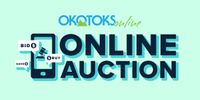Freedom to Read Week – February 21 to 27
A lot of discussion has come about this week regarding this very important topic.
Some questions were raised about banned and challenged books and some clarification was needed. We decided to pose these questions to Franklin Carter, an editor and researcher who works on contract for the BPC, and is on the Freedom of Expression Committee.
Q 1.What is the difference between a challenged and a banned book?
A. A banned book (or magazine or newspaper or DVD or CD) is removed from the public realm by some authority. No one is allowed to read it.
A challenged book (or magazine or newspaper or DVD or CD) is in a public library or a public school. The book is the target of someone (one person or several) who dislikes it and doesn’t want other people to read it. The person files a complaint with the library or school and demands the book’s removal.
The reasons for the challenge are limited only by the imagination.
Sometimes challenges succeed. When they succeed, the library or school authorities remove the book from the shelves. But often challenges fail. When they fail, the books remain in circulation. They remain available to people who want to read them.
Q 2.What are the steps that are taken to get a book on the banned book list?
A. Very few books (or magazines or newspapers or DVDs or CDs) are legally banned in Canada. The books that are banned include words and/or images that violate Canada’s legal bans on hate propaganda or obscenity.
An example is The Protocols of the Elders of Zion, an old anti-Semitic book that first appeared in Russia before World War I.
The police in Canada act on complaints. They’ll receive a complaint from a concerned or outraged citizen about a book. If the book is in a store, the police might visit the store to check things out. They’ll exercise their judgment. If they think the book is hate propaganda or obscene, they might caution the bookseller. They might confiscate the book.
Customs officials at the international border also have the authority to seize imported publications. They’ve had this authority since 1847. If they think a book violates a legal ban, they’ll confiscate it. They might return the book to the exporter; they might destroy the book. For generations, customs authorities made these decisions in secret. Appeals to judges in open courts were rare.
Customs officials keep track of banned publications. They make some of the titles known in quarterly reports. In recent years, the number of titles in these reports has been falling.
Q 3. If a book is banned, is it not allowed to on the shelves of libraries or taught in schools? Is this the same of challenged works?
A. If a book is legally banned, then access to it is restricted. The book won’t appear on the open shelves of public libraries or public schools. The book won’t be taught in schools. Ordinary citizens aren’t supposed to read these books.
Challenged books are much more available. Even when a book challenge succeeds — let’s say a Roman Catholic school district removes Philip Pullman’s novels from its schools — the books remain available in other schools, libraries and bookstores. People can still find and read the books.
The BPC abides by the law and court judgments. The BPC also retains the right to criticize book bans and challenges. We think people should be free to read almost anything because reading and thinking are peaceful activities. They are not, and should not be, crimes.
R. Franklin Carter
Editor and Researcher
Freedom of Expression Committee
Book and Periodical Council
Toronto, Canada
A big Thank you to Mr. Carter for explaining so eloquently.
So the moral of this story? Keep reading your favorite books and don't take this freedom for granted.
~ Tracy



